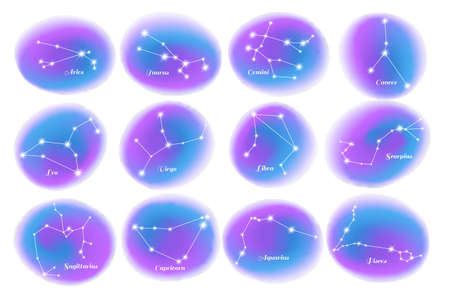Setting the Scene: Neptune’s Symbolism and British Culture
Neptune, with his trident and swirling sea mists, has long captured the imagination of cultures across the world. In mythology, Neptune (or Poseidon in Greek legend) is the god of the sea, representing both mystery and boundless possibility. But beyond ancient stories, Neptune’s symbolism runs deep—especially in Britain, an island nation perpetually shaped by its relationship with water. From the tempestuous English Channel to the tranquil lakes of Cumbria, water features prominently in British identity and collective memory.
In astrology, Neptune rules dreams, illusions, intuition, and escapism. Its influence is subtle but powerful—like mist rolling over a Cornish moor or fog obscuring the Thames at dawn. These Neptunian qualities have found fertile ground in the British psyche and cultural landscape. The romantic poets—Wordsworth wandering lonely as a cloud or Coleridge conjuring visions of Xanadu—invite us to lose ourselves in reverie. British art, too, often explores blurred boundaries between reality and fantasy; think of Turner’s impressionistic seascapes or the surreal worlds of Lewis Carroll.
Psychologically, Neptune’s domain resonates with the British tendency towards reserve and introspection. Escapism becomes not just a desire for adventure but a way to navigate emotional complexities without direct confrontation. Whether through literature, art, or quiet daydreams by rain-lashed windows, the British embrace fantasy as both refuge and revelation. As we journey through this exploration of Neptune’s place in dreams and British culture, we’ll uncover how mythic waters shape our inner worlds—and why escaping into fantasy might just be a quintessentially British pursuit.
2. Dreams and Escapism: Historical and Contemporary Perspectives
To truly understand the British psyche in relation to Neptune’s symbolism of dreams and escapism, it is essential to trace how these themes have evolved through Britain’s cultural history. From the romantic ideals of the Victorian era to the nuanced attitudes of modern pop culture, British society has developed a unique relationship with fantasy and emotional expression—often balanced by the enduring ‘stiff upper lip’ mentality.
Victorian Romanticism: The Age of Imagination
During the Victorian period, escapism manifested through literature, art, and social movements that sought refuge from industrial realities. Writers like Lewis Carroll and poets such as Lord Tennyson provided doorways into fantastical worlds where imagination flourished. These creative works allowed people to momentarily transcend daily hardships, reflecting Neptune’s dreamlike influence.
Modern Pop Culture: New Forms of Escapism
In contemporary Britain, escapist tendencies have shifted but remain significant. Television series like Doctor Who and novels such as Harry Potter continue the tradition of offering alternative realities, while music festivals and immersive theatre experiences provide collective spaces for fantasy. Yet, this modern escapism is also shaped by increased awareness of mental health and self-expression—a marked shift from older norms.
The ‘Stiff Upper Lip’: Emotional Restraint Versus Fantasy
Despite these outlets for dreaming, the British are often associated with a reserved approach to emotion—the ‘stiff upper lip’. This cultural trait can create an internal tension between the desire to escape into fantasy and the pressure to maintain composure.
| Era | Main Expression of Escapism | Cultural Attitude |
|---|---|---|
| Victorian | Literature & Poetry (e.g., Alice in Wonderland) | Imagination as solace; restraint in public emotion |
| 20th Century | Cinema & Radio Dramas | Collective escape during hardship (e.g., WWII) |
| Contemporary | TV, Music, Digital Worlds | Emotional openness vs. traditional reserve |
This ongoing dance between Neptune-inspired dreaming and societal restraint not only shapes personal coping mechanisms but also forms an integral part of Britain’s national identity—inviting us to reflect on how we balance our need for fantasy with our cultural values.

3. Neptune’s Influence on the British Psyche
The emotional landscape of the UK has always been subtly shaped by currents of fantasy, nostalgia, and idealism—qualities deeply resonant with Neptune’s symbolic influence. In a nation where grey skies and routine can sometimes feel overwhelming, the British psyche often turns to imaginative escapes. This inclination is woven into the cultural fabric, from whimsical children’s stories like Peter Pan to the wistful yearning for a bygone “golden age” captured in period dramas and literature.
Fantasies as Emotional Refuge
For many Britons, fantasy serves as both sanctuary and compass. Whether it’s daydreaming during a rain-soaked commute or losing oneself in magical realism, these flights of imagination offer solace from life’s monotony and pressures. Such escapism is not mere avoidance; rather, it provides a gentle buffer—a way to process daily stresses while keeping hope alive for something better just over the horizon.
Nostalgia and Collective Memory
Nostalgia holds a special place in British hearts. From cherished childhood memories to national traditions steeped in history, looking back often brings comfort. Neptune’s energy encourages this longing for the past, allowing people to reinterpret reality through rose-tinted spectacles. This collective reminiscence helps create continuity amidst change, offering a sense of rootedness when modern life feels uncertain.
Idealism: The Quiet Strength
Despite an often understated exterior, there runs through the British psyche a current of idealism—an unwavering belief in fairness, kindness, and second chances. This Neptunian quality fuels dreams for personal growth and social progress. While such ideals may seem elusive or even naive at times, they inspire resilience and creativity in the face of adversity. By embracing these qualities, individuals find meaning beyond the ordinary and nurture a sense of shared aspiration that shapes both personal journeys and broader society.
4. Fantasies in Everyday Life: Media, Art, and Literature
The influence of Neptune’s dreamlike motifs is deeply woven into the fabric of British culture, manifesting in our everyday experiences with media, art, and literature. The British psyche, often described as both reserved and richly imaginative, finds countless outlets for escapism—some subtle, some grandiose—mirroring the shifting tides and mists associated with Neptune. From a psychological lens, these expressions serve as collective safe havens, offering moments to step away from reality and engage with deeper layers of emotion, creativity, and subconscious longing.
Classic Novels: Navigating Mist and Mystery
British literature has long been captivated by themes that echo Neptunian qualities: ambiguity, fantasy, and the unknown. Works like Lewis Carroll’s Alice’s Adventures in Wonderland or J.M. Barrie’s Peter Pan draw readers into surreal worlds where logic dissolves into whimsy. Even Jane Austen’s subtle social comedies often hint at unspoken dreams beneath the surface of everyday life. These novels not only entertain but also provide a means to process desires and fears that may otherwise remain submerged.
Surreal Art Movements: Visualising the Unconscious
The British art scene has embraced the surreal with open arms—consider movements such as British Surrealism or contemporary installations found in galleries like the Tate Modern. Artists including Paul Nash and Leonora Carrington channel Neptunian energy through landscapes that blur reality and imagination, inviting viewers to contemplate what lies beyond the obvious. This engagement with the unconscious aligns closely with Neptune’s symbolism of illusion and transcendence.
Fantasy Films and Series: Collective Escapism
In recent decades, Britain has become synonymous with world-famous fantasy franchises—think Harry Potter, The Chronicles of Narnia, or TV series like Doctor Who. These stories offer more than simple entertainment; they serve as modern mythologies for navigating personal and societal change. They provide safe spaces for audiences to project their hopes and anxieties onto magical worlds where anything is possible.
Neptune’s Motifs Across Creative Mediums
| Medium | Example | Neptunian Theme |
|---|---|---|
| Literature | Alice’s Adventures in Wonderland | Dream logic, blurring reality |
| Art | Paul Nash’s Landscapes | Mystical transformation of nature |
| Film/TV | Harry Potter Series | Escapist magic, hidden worlds |
Cultural Reflection: Why Do We Dream?
The omnipresence of fantasy in British life reflects a collective yearning for meaning beyond the material—a desire to explore inner landscapes when outer reality feels limiting or uncertain. As we immerse ourselves in stories, images, and spectacles shaped by Neptunian currents, we are gently reminded that imagination is not mere escapism but a vital tool for resilience and self-understanding within British society.
5. Escapism as Coping: The Psychological Perspective
Escapism, as symbolised by Neptunes ethereal presence, plays a nuanced role in the British psyche, especially when it comes to coping with stress and uncertainty. In the UK, where societal pressures often encourage restraint and emotional composure, finding healthy ways to manage internal turmoil is essential. Many turn to daydreams, fiction, cinema, or even weekend getaways as forms of psychological relief. These escapist behaviours provide a necessary pause—a chance to step back from daily anxieties and recharge mentally.
From a psychological standpoint, moderate escapism can be beneficial. It allows individuals to process difficult emotions indirectly, giving space for creativity and problem-solving that might not emerge under constant pressure. For example, losing oneself in a favourite novel or an afternoon at the seaside can help restore emotional balance, offering a sense of possibility and hope.
However, there are drawbacks if escapism becomes a habitual response rather than an occasional refuge. Over-reliance on fantasy or avoidance can prevent people from addressing the root causes of their distress. This may lead to increased feelings of isolation or helplessness over time—an experience not uncommon in British culture, where keeping calm and carrying on sometimes masks deeper issues.
The Fine Line Between Self-Care and Avoidance
Psychologists emphasise the importance of awareness: recognising when escapism serves as healthy self-care versus when it slips into avoidance. In the context of British society—often typified by stoicism—learning to acknowledge and articulate one’s needs is crucial for lasting wellbeing.
Practical Guidance
If you notice yourself reaching for escapist habits more frequently during stressful periods, consider asking:
- Is this activity helping me process my emotions, or am I using it to avoid them altogether?
- After engaging in escapism, do I feel refreshed and ready to face challenges, or more withdrawn?
Seeking balance is key. Occasional retreat into fantasy or leisure is natural—even vital—but integrating these moments with honest reflection and support (from friends, family, or professionals) ensures that Neptune’s dreams remain sources of inspiration rather than obstacles to growth.
6. Grounding the Dream: Practical Approaches for a Balanced Mind
Channelling Neptune’s Energy with Intention
While Neptune’s influence on the British psyche may inspire daydreams and escapism, harnessing this ethereal energy in practical ways is essential for mental wellbeing. Rather than suppressing fantasies or creative impulses, consider giving them structure. Set aside time each week for creative pursuits—journalling, painting, or composing music—where your imagination can roam freely yet safely contained within a routine. This regular practice helps prevent dreams from overwhelming daily life while still honouring their importance.
Culturally Sensitive Mindful Practices
The British tradition of “a cuppa and a chat” provides an excellent template for gentle reality checks. Connecting with friends over tea or taking a walk in nature—perhaps through the local park or along the coastline—can ground you in the present moment. These familiar rituals invite reflection without judgement, allowing you to share dreams and worries alike. By weaving mindfulness into these everyday activities, you can cultivate awareness of when escapism serves you and when it risks becoming avoidance.
Creative Dreamwork and Practical Reflection
Dream journaling is a time-honoured technique that bridges fantasy and reality. Upon waking, jot down images or feelings from your dreams, then reflect on how they might connect to your waking life. Pair this with setting achievable goals for the day—a practice that keeps your feet firmly planted even as your head explores the clouds. For those inspired by British literary figures who blurred the lines between fantasy and reality, such as Lewis Carroll or Virginia Woolf, blending creative exploration with structured reflection can be particularly empowering.
Seeking Support: When to Reach Out
If you find yourself using fantasies to consistently avoid challenges or emotional discomfort, it may be helpful to seek support—from a trusted friend, family member, or professional counsellor. The British ethos often values self-reliance, but recognising when you need help is a strength in itself. Consider joining local workshops or community groups focused on creativity and mental health; these spaces offer both connection and accountability as you navigate Neptune’s waters.
Building Resilience Through Balance
Ultimately, grounding Neptune’s dreamy influence is about cultivating balance—a blend of visionary thinking and practical action that suits both individual needs and cultural context. Embrace your inner dreamer while remaining attentive to the realities around you. In doing so, you honour not only your own psychological wellbeing but also the rich tapestry of British cultural resilience.


